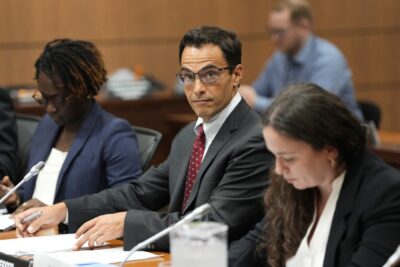Budget watchdog calls for more transparency after Liberals shift fiscal anchors
By Canadian Press on November 24, 2025.

OTTAWA — Ottawa is not planning to set up an independent body to scrutinize the new capital framework in its budget, despite calls for more transparency from the government’s fiscal watchdog.
Interim parliamentary budget officer Jason Jacques told MPs on the House of Commons finance committee Monday that he fears the changes made to the federal government’s fiscal anchors in the recent budget were made quickly and without parliamentary debate.
Jacques said that while the federal government has “full discretion” over its fiscal anchors, new metrics ought to come with a matching level of scrutiny.
“The moment it entered into the territory of, this is our new fiscal anchor, this is how Canadians can judge our performance, and this is how we’re going to communicate with parliamentarians … it turned it into something that certainly requires greater transparency,” Jacques said.
The government’s new metrics for demonstrating fiscal prudence include balancing the operating side of the budget in three years — after it split capital spending into its own category — and charting a declining path for the deficit-to-GDP ratio.
Jacques said those changes were introduced just six weeks before the budget was tabled and marked a significant departure from one of the previous anchors, which committed the government to shrinking the debt-to-GDP ratio.
John Fragos, press secretary for Finance Minister François-Phillipe Champagne, said the Liberals have been candid since the spring federal election about their plans to shift the budgeting approach to focus on capital investment, and the new framework was presented to parliamentarians with enough lead time.
“We’ve been decidedly transparent and forthcoming in disclosing our plan to spend less so we can invest more in the projects, programs and infrastructure that grow the economy all while exercising fiscal prudence,” Fragos said.
Jacques’ Nov. 14 analysis of the federal budget tabled 10 days earlier found the Liberals were expected to maintain long-term fiscal sustainability thanks to a flat-to-declining debt-to-GDP ratio over a 30-year horizon.
But Jacques argued the Liberals were using up their fiscal powder and the government would be less able to absorb new shocks in the future. He suggested the government would likely blow past its goal of a declining deficit-to-GDP ratio and would be a year late hitting its goal of balancing the operating budget.
While definitions of debt and GDP are clearly spelled out by independent sources, Jacques said the Liberals should create an oversight body to ensure the government is adhering to its own new benchmarks for capital spending — a practice followed in other jurisdictions that separate capital and operating budgets, such as the United Kingdom.
The budget officer compared Ottawa’s current setup to his 17-year-old son deciding what his homework assignment should be and then marking it himself.
Fragos said the government is not currently considering setting up the kind of oversight Jacques is suggesting.
To back up the government’s financial decisions, Fragos pointed to comments from former PBO Kevin Page and IMF managing director Kristalina Georgieva supporting Ottawa’s decision to tap its relatively stable fiscal position and run deeper deficits in the face of economic disruption.
The federal budget, which recently passed by a slim majority in the House of Commons, projects a jump in the deficit to $78.3 billion for this fiscal year and average deficits of more than $60 billion over the five-year planning horizon.
The Liberals say they’ve found roughly $60 billion in operational savings and efficiencies over that time frame to help fund new capital investments.
Jacques has previously criticized the government’s capital definition as “overly expansive” because it includes things like tax expenditures that encourage capital formation from other levels of government or the private sector but do not go toward creating assets directly.
He argued in his analysis that, under his office’s stricter definition of capital investment, the Liberals’ deepening deficits are instead being driven by new operating spending.
On Monday, Jacques told MPs that tax breaks can indeed indirectly encourage capital investment, but it’s harder to draw the connection between the spending and the asset.
“The further you stretch the relationship between … the spending and what is considered investment, the harder it is to actually identify or determine whether it’s actually a capital investment or not,” he said.
This report by The Canadian Press was first published Nov. 24, 2025.
Craig Lord, The Canadian Press
25-24

